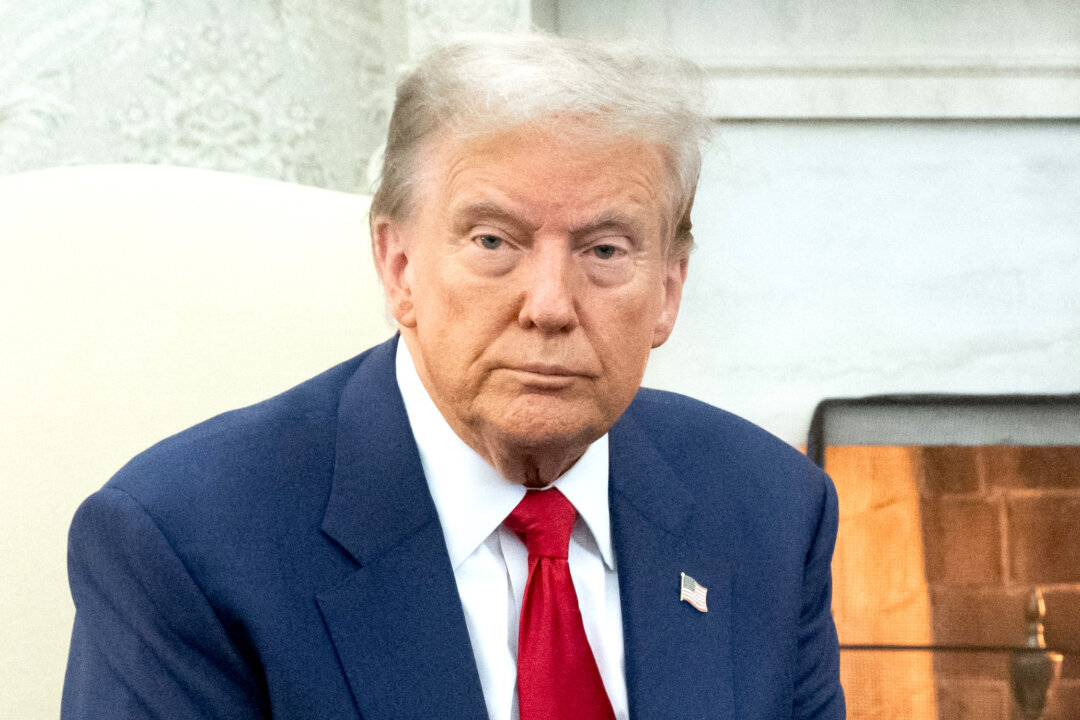‘These unnamed sources are speculating and have no idea what they are actually talking about,’ the president-elect’s spokeswoman said.
President-elect Donald Trump’s team refuted anonymously sourced reports claiming that he would immediately discharge all transgender-identifying people from the military upon taking office.
Trump spokeswoman Karoline Leavitt, who was tapped by the president-elect to be his press secretary, said in a statement to The Epoch Times on Nov. 30 that such claims by several media outlets are based on speculation.
“These unnamed sources are speculating and have no idea what they are actually talking about,” Leavitt said. “No policy should ever be deemed official unless it comes directly from President Trump or his authorized spokespeople.”
The alleged proposed plan was first reported by The Times of London, citing “defense sources” and a “source familiar with Trump’s plans,” last week and would entail Trump’s signing an order to medically discharge transgender-identifying troops from the military. The move, it claimed, would force some 15,000 individuals from the armed forces.
The report did not list any named sources and did not indicate whether any of the individuals worked on the Trump transition team.
In response to The Times of London report, the head of the pro-LGBT Human Rights Campaign alleged that such a ban would “make our country less safe” and is “nothing more than transphobia.”
“Our military must be able to recruit the best candidates, retain the highly trained service members who have already sacrificed so much for their country, and every qualified patriot should be able to serve openly, free of discrimination,” Kelley Robinson, Human Rights Campaign president, said in a statement last week amid the reports.
In 2017, during his first term in office, Trump announced that the military would no longer allow transgender-identifying people to serve in “any capacity,” coming after the Obama administration allowed such people to serve in the military and receive taxpayer-funded medical treatments related to identifying as transgender.
“Our military must be focused on decisive and overwhelming victory and cannot be burdened with the tremendous medical costs and disruption that transgender in the military would entail,” Trump wrote on social media in July 2017.
The policy was revised in 2018 and only blocked people from serving in the military who had a history of gender dysphoria who were unable or unwilling to serve as their biological sex or had undergone medical transition treatment. In 2019, the Supreme Court ruled 5–4 that the 2018 version of the ban could remain intact, but the ban was later reversed by President Joe Biden.
Just days after taking office in early 2021, Biden signed an executive order that overturned the first Trump administration order.
At the time, Biden said that the U.S. military is “stronger” around the world and at home “when it is inclusive,” according to a statement. Defense Secretary Lloyd Austin had also indicated that he backed Biden’s decision.
In mid-2016, President Barack Obama ended a longstanding ban on transgender-identifying people in the military, with Defense Secretary Ash Carter at the time saying in a news conference that the military has to “have access to 100 percent of America’s population.”
Aside from military-related policies, Trump has backed a ban on transgender medical treatments for minors.
On his campaign website, the president-elect said he would remove hospitals and health care providers that participate in the “chemical or physical mutilation of minor youth” from Medicaid and Medicare programs.
Meanwhile, Trump has proposed barring transgender-identifying athletes from competing in women’s sports. In a town hall event in September, Trump said that if elected, his administration would stop the policy because “it’s a man playing” in a women’s game.
“Look at what’s happened in swimming. Look at the records that are being broken,” he said.
In an Associated Press survey of more than 120,000 people who cast ballots during the last election, more than half of voters stated that support for transgender rights in government and society has gone too far. Among Trump voters, 85 percent said such support had gone too far.
The Associated Press contributed to this report.

